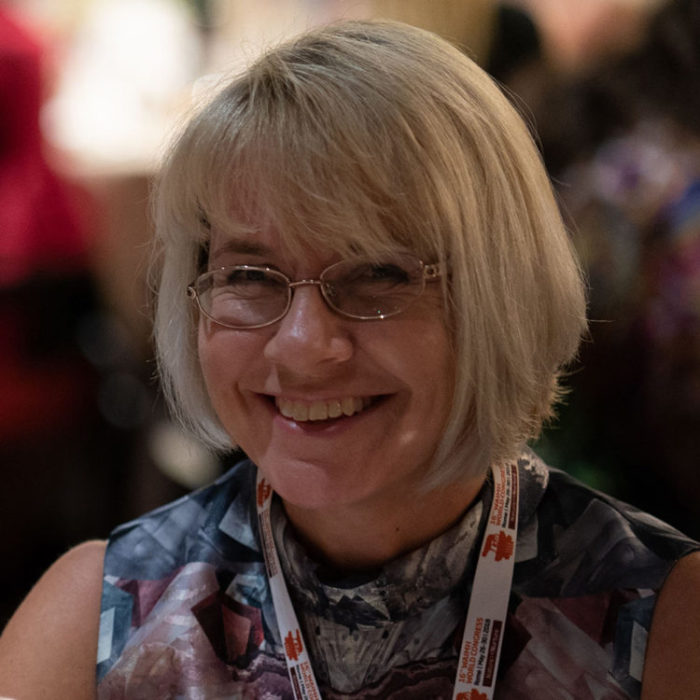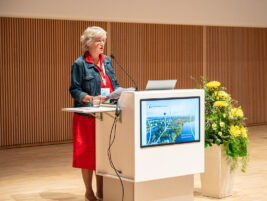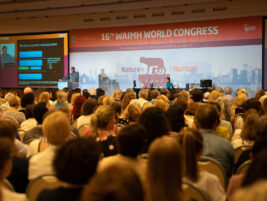Dear colleagues and friends,
The current special issue of Perspectives addresses how we need to rethink and reshape the field of Infant Mental Health by identifying and addressing various biases in existing theories, research, and interventions. This includes questioning the long-standing dominance of Western perspectives and ensuring that knowledge systems from various other cultures are valued and integrated into the existing knowledge base. What I believe quite many of us have already experienced and understood is that infant mental health is necessarily influenced by cultural contexts. This means that, in order to successfully promote Infant and Early Childhood Mental Health, we need to understand and respect the diverse ways in which different cultures approach parenting, caregiving, and child development. Developing interventions that are tailored to the specific needs and contexts of local communities is key to this goal and can only be achieved by working closely with community members to create culturally relevant and effective mental health services for young children and their families.
In the current geopolitical situation, we hear daily news from various parts of the world about how nationalistic ideas are gaining strength, and how interest in and respect for people from other cultures and backgrounds are not encouraged but instead considered a weakness. From history, we know—or should know—that cultural and ethnic diversity is actually a force that helps populations develop, stay healthier, and thrive. Here in Tampere, Finland, we currently have an interesting exhibition at the Vapriikki Museum called Ancient DNA: A Key to the Past. We Finns have long thought that we are a genetically homogenous group of people. However, already during the Stone Age, different groups lived in Finland, among which the exhibition highlights the hunter-gatherers of the Cambrian culture and the herders of the Late Bronze Age culture. In the Bronze Age, new traditions arrived in Finland from the East, and in the Iron Age from the South. It is now known that the genetic background of modern Finns is a diverse mix of groups of people who arrived at different times and from different directions, and that this diversity has helped our populations grow. All in all, it seems really short-sighted not to celebrate diversity—even if we just think about our genetic constitution, not to mention cultural enrichment.
The theme of the WAIMH 19th World Congress in Toronto, October 2–6, 2026, is Harmony in Diversity. It could not be more fitting for this Perspectives special issue and for our current world. I had the honor and pleasure of going to Toronto this April for a site visit and to take part in the Expanding Horizons Congress organized by our Local Organizing Committee Chair Chaya Kulkarni and her great team, including Program Committee member Warren Kapashesit. Canadians are warm and welcoming people and are looking forward to hosting us all. An essential part of Canadian hospitality is that all congress guests will be served a warm lunch in addition to morning and afternoon refreshments, so I ate really well at Expanding Horizons—and so will every delegate at the 2026 Congress.
Toronto is also a very traveler-friendly city. It has a well-functioning public transport system, and from the international airport, you can take the UP Express train, which takes you to the city center in 20 minutes. The compact city center also makes it easy to walk around, if you wish to take a break and leave the Congress site at the Sheraton Centre Hotel on Queen Street. A popular site for taking selfies is the City Hall, located just across the street from the Sheraton, and a fun fact is that it was designed by Finnish architect Viljo Revell.
Toronto is also a very suitable site for our World Congress, being one of the most multicultural cities in the world, with over 250 ethnic groups and 170 languages represented. I encourage you all to bring your own unique clinical or scientific contribution to our wonderful diversity of presentations and people. The submission of abstracts is open until December 1st, so you have plenty of time to submit. Together, we can make a difference—and make the world a bit better for infants, young children, and their families.
With warmest regards to you all,
Kaija








